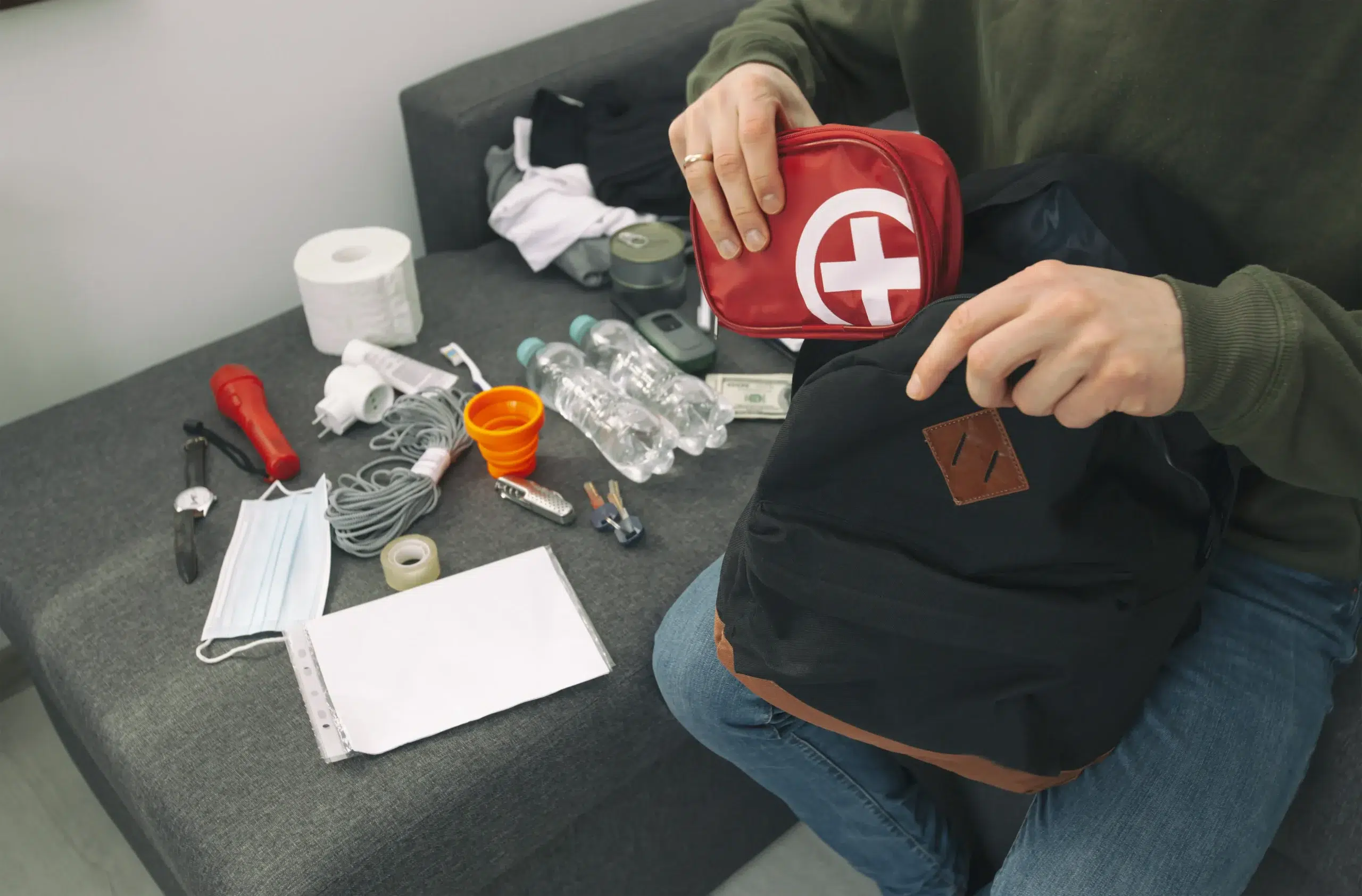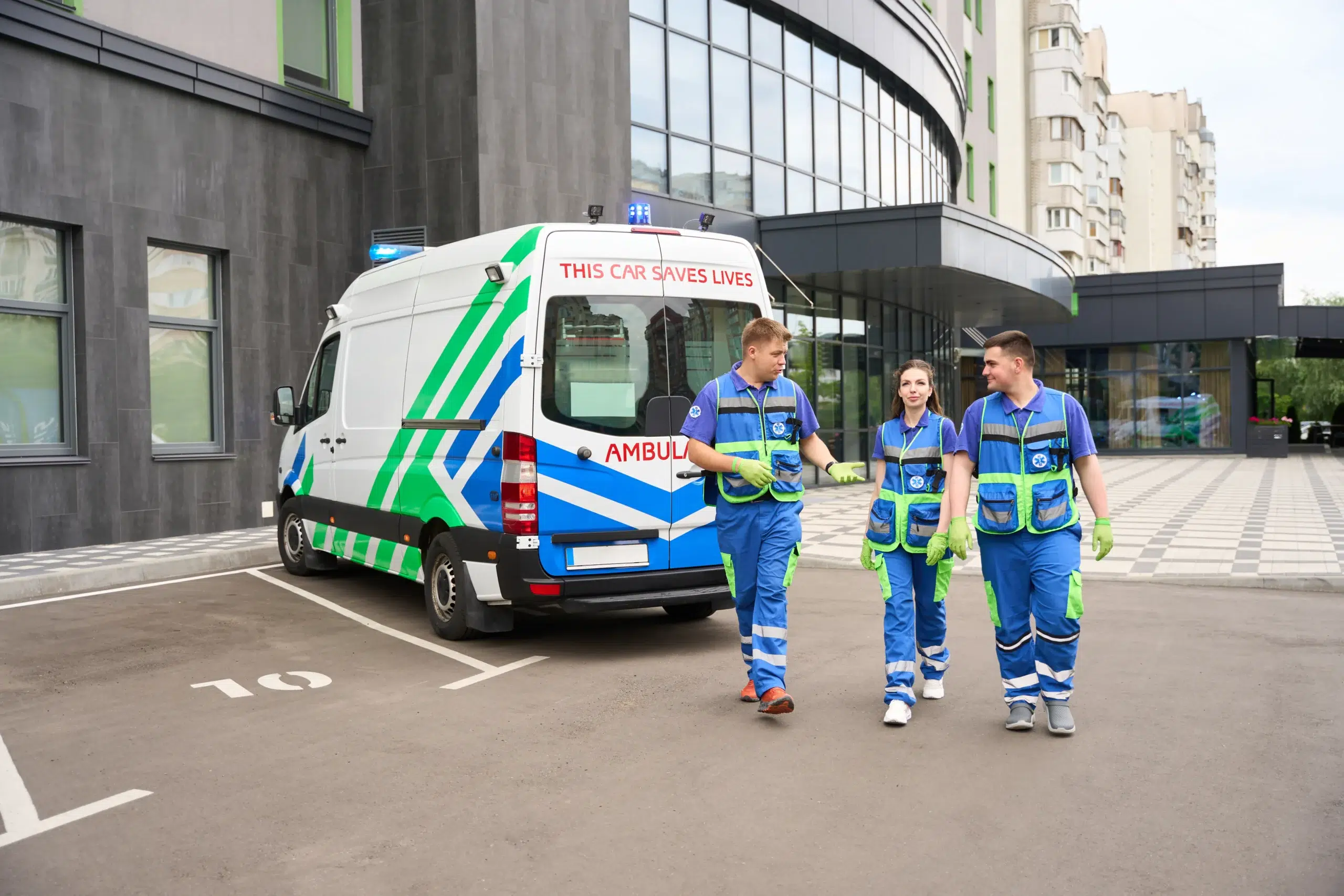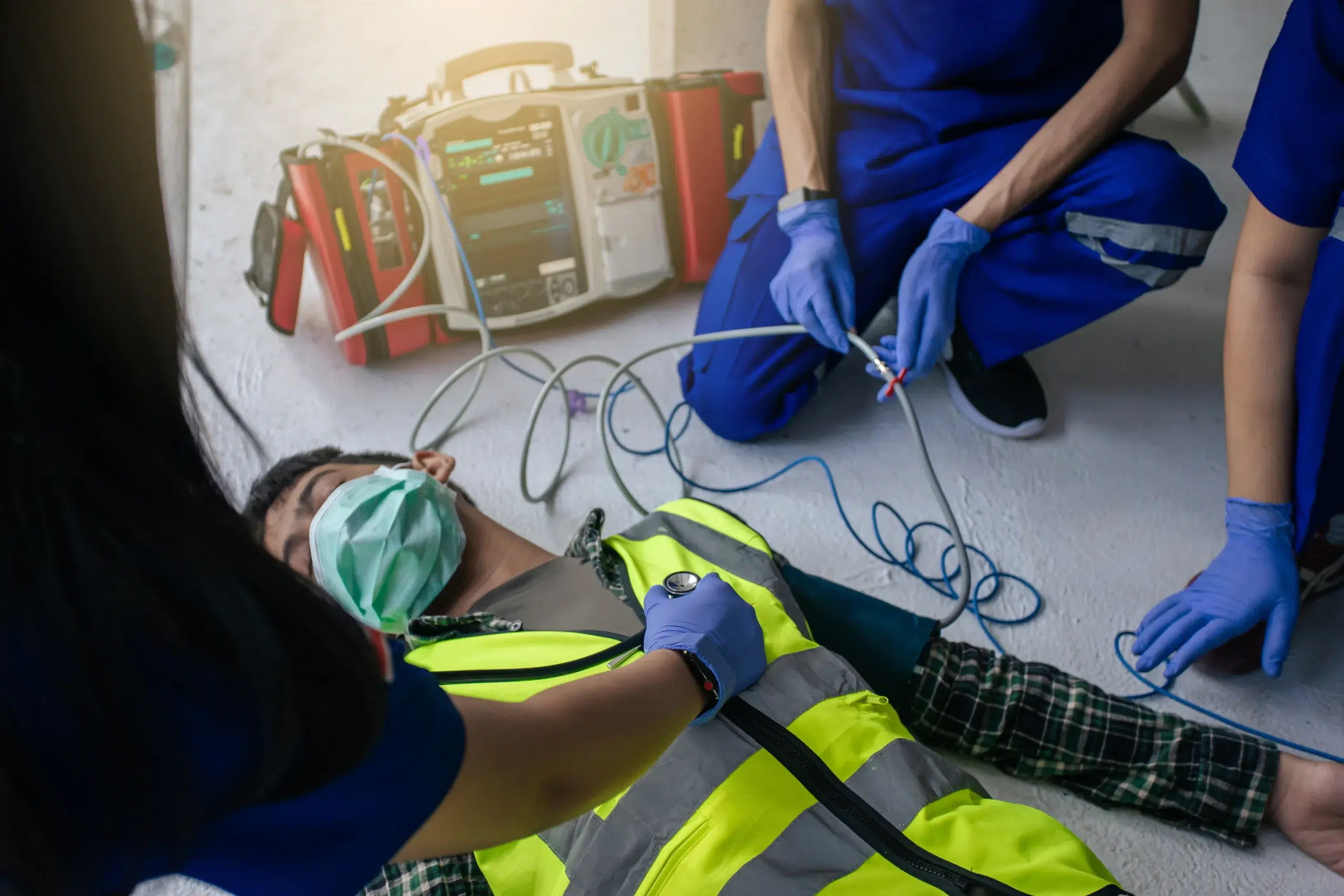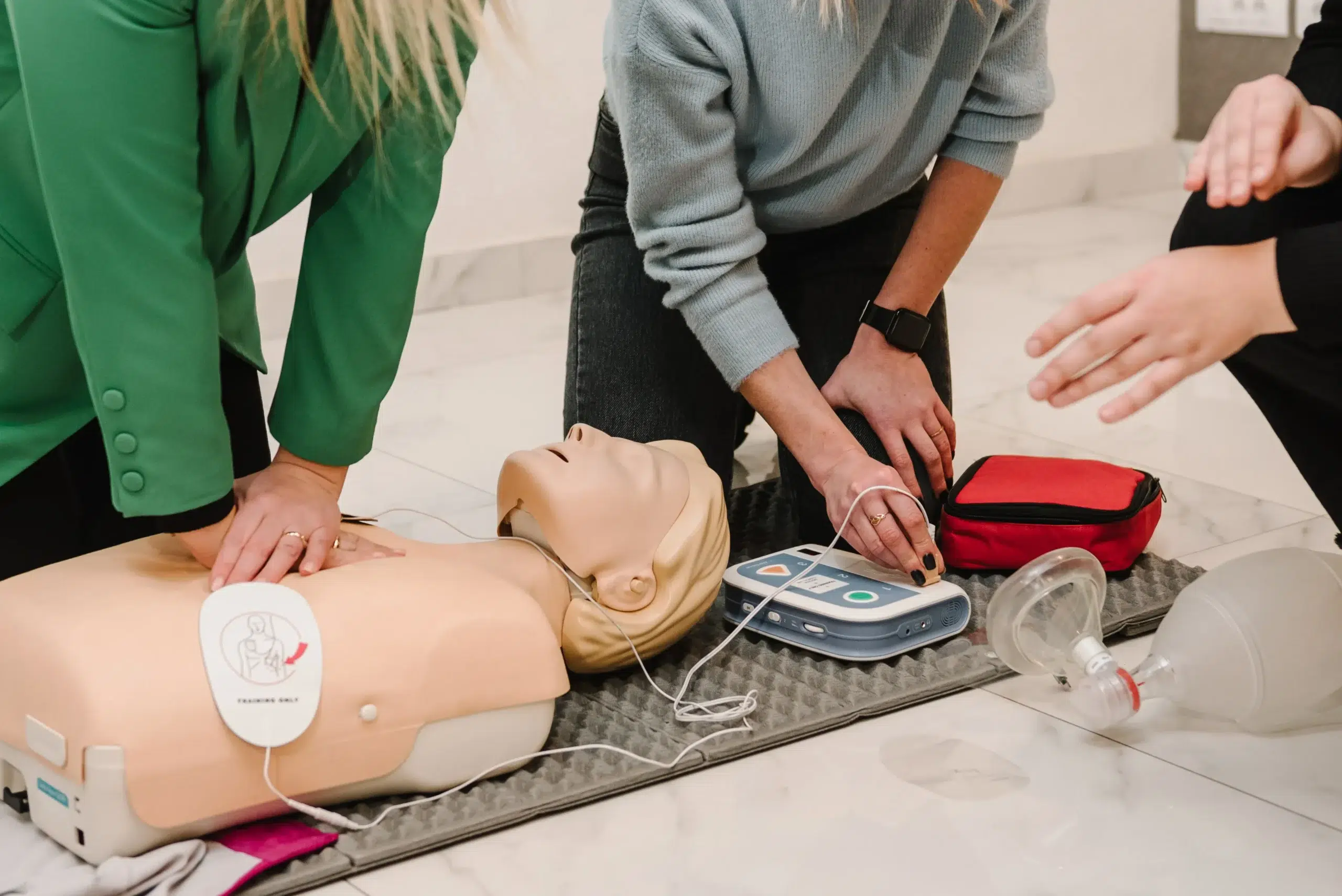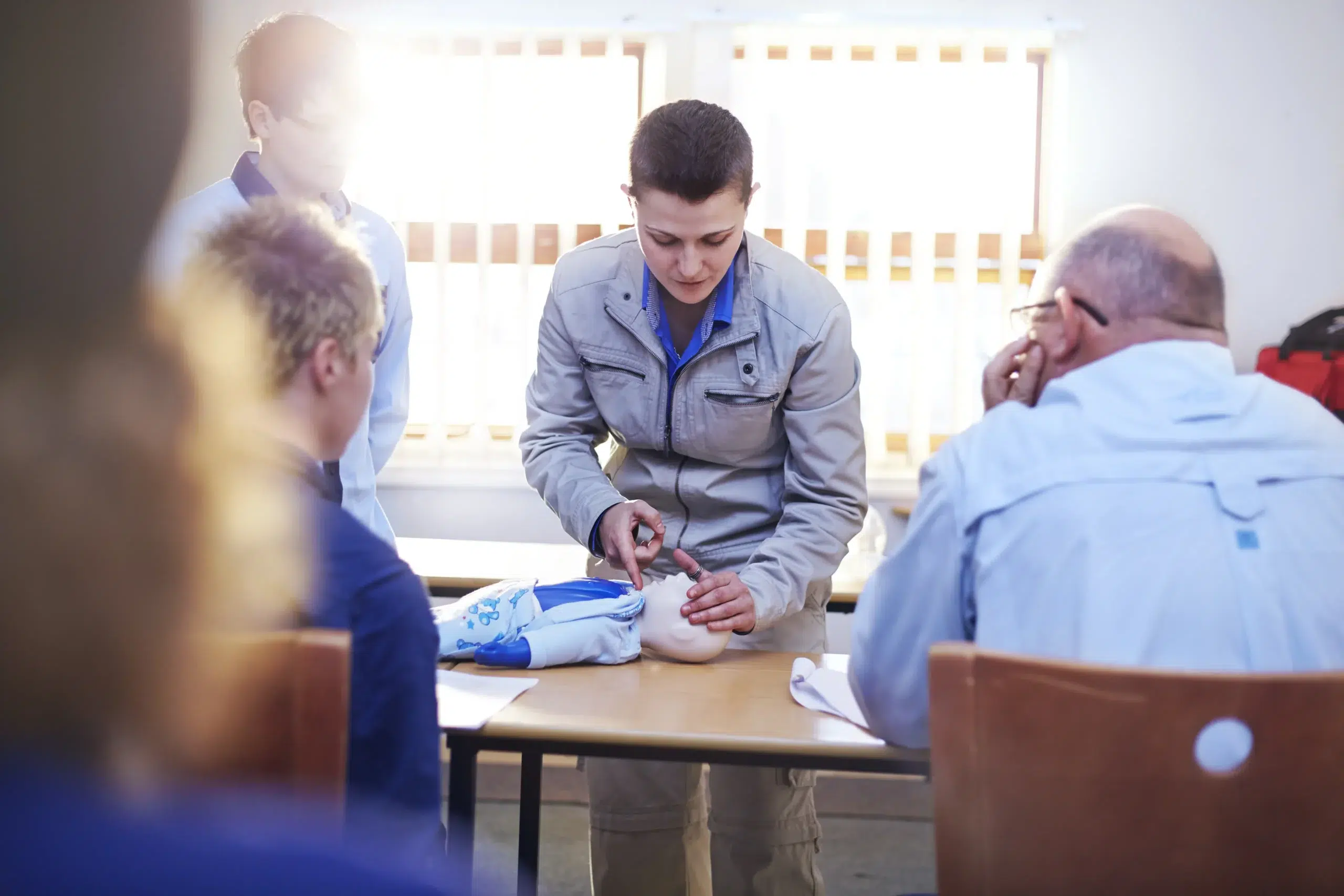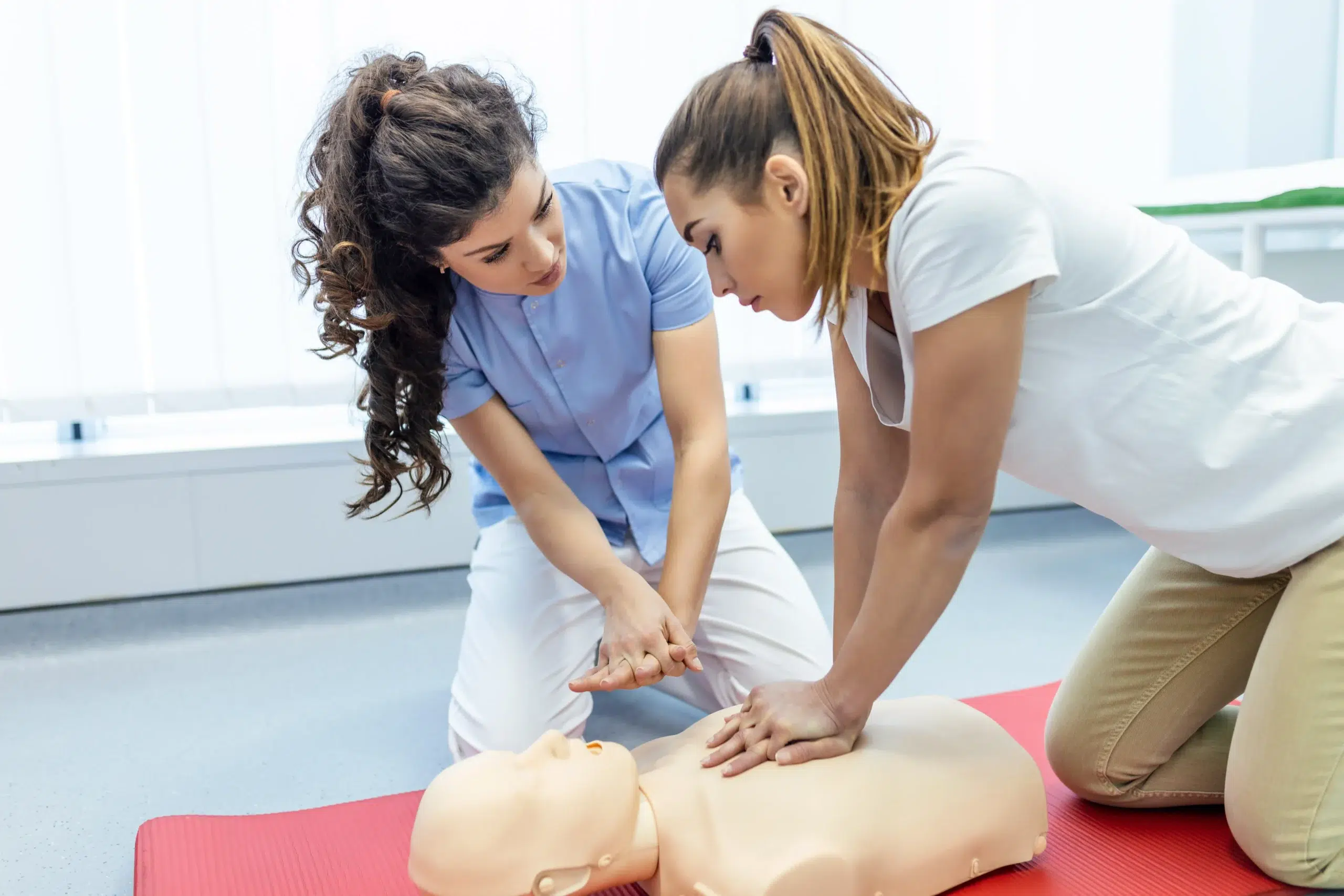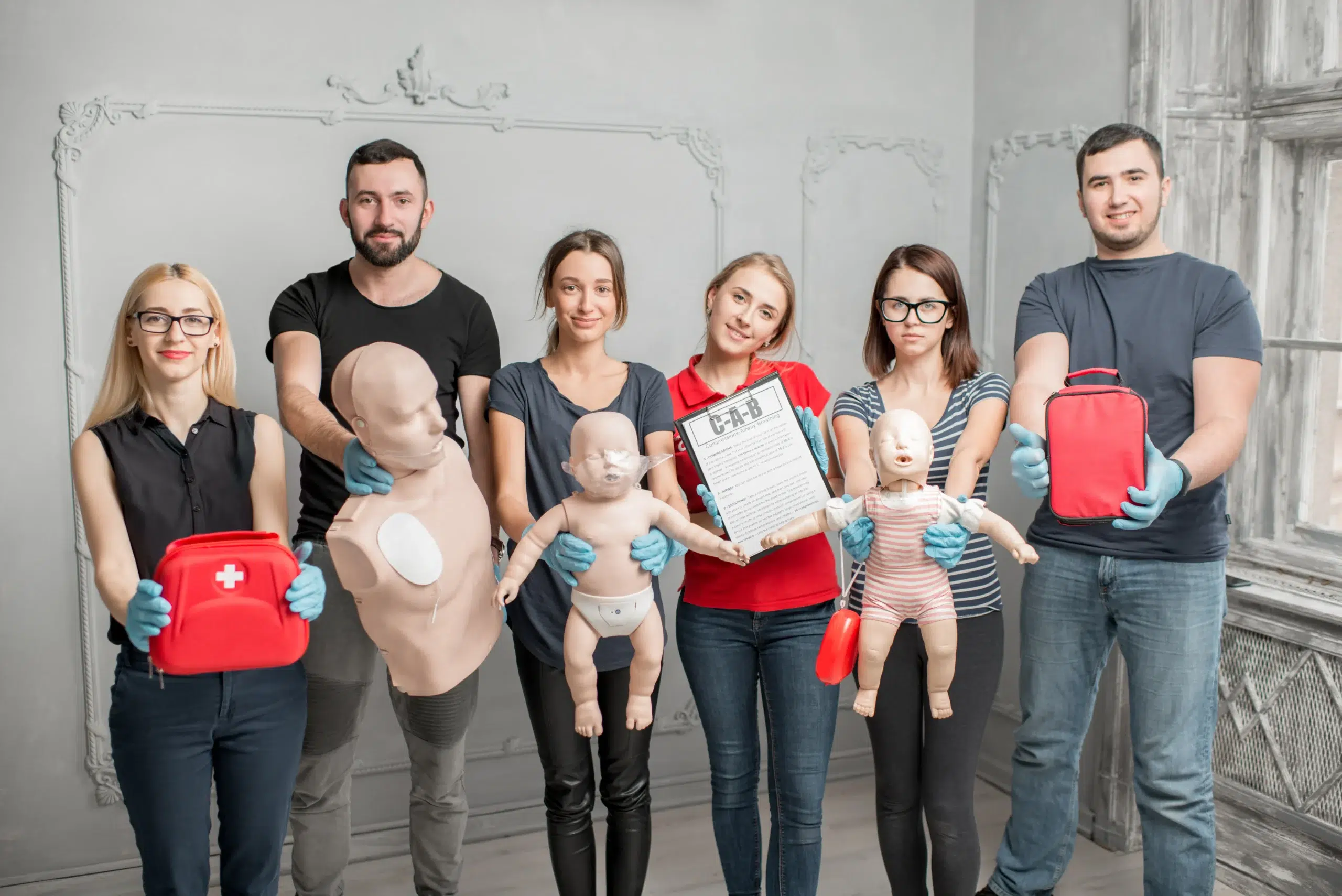Emergencies can happen anytime, anywhere. Being equipped with life-saving skills like CPR can make all the difference. If you’re looking for CPR courses in Concord, you’ve come to the right place. This guide will walk you through the various CPR certifications available, from basic to advanced, and help you find the right class to fit your specific needs. We’ll also cover where to find training, what to expect in a class, and how to choose a reputable provider.
Key Takeaways
- Choose the right CPR class: Determine if you need basic life support (BLS), advanced cardiovascular life support (ACLS), pediatric advanced life support (PALS), or a combination of CPR and first aid training based on your professional requirements and personal goals.
- Find a convenient training provider: Explore various options, including Pleasant Hill CPR Classes, American Heart Association Training Centers, Red Cross facilities, and other local providers. Consider factors like location, schedule flexibility, and course formats (in-person, online, or hybrid).
- Consider cost and learning style: Compare pricing and look for discounts or low-price guarantees. Prioritize hands-on training and choose a class format that aligns with your learning preferences. Contact providers directly to discuss scheduling options and group discounts.
Find the Right CPR Class in Concord
Choosing the right CPR class can feel overwhelming, but knowing what’s available and what to look for makes the process easier. This guide breaks down your options for CPR training in Concord, from the types of certifications to where you can find them.
What CPR Classes Are Available?
Different CPR certifications cater to various needs and professional levels. Here’s a quick overview:
Basic Life Support (BLS)
The BLS certification covers core life-saving skills, including CPR, AED use, and choking relief. It’s essential for healthcare providers and anyone in a medical field.
Advanced Cardiovascular Life Support (ACLS)
ACLS training builds upon BLS skills, focusing on advanced life support techniques for treating cardiac arrest and other cardiovascular emergencies. It’s crucial for medical professionals working in critical care settings.
Pediatric Advanced Life Support (PALS)
PALS certification equips healthcare providers with the specialized knowledge and skills to respond to life-threatening emergencies in infants and children.
First Aid & CPR
Combining First Aid and CPR training provides a comprehensive skill set for handling various medical emergencies, from minor injuries to life-threatening situations. See available courses.
Where to Get CPR Training in Concord
Several reputable organizations and training centers offer CPR classes in and around Concord:
Pleasant Hill CPR Classes
Pleasant Hill CPR Classes provides a range of AHA-certified courses, including BLS, ACLS, PALS, and First Aid, conveniently located for residents of Concord, Walnut Creek, and Pleasant Hill. Learn more.
American Heart Association Training Centers
The American Heart Association (AHA) authorizes various training centers throughout the area, ensuring high-quality, standardized instruction.
Red Cross Facilities
The Red Cross also offers CPR and First Aid certification courses, providing another option for individuals seeking training.
CPR Training Center
CPR Training Centers often specialize in group and corporate on-site training, making it convenient for businesses to certify their employees.
Safety Training Seminars
Safety Training Seminars and similar organizations frequently offer a variety of AHA-accredited courses, catering to different needs and schedules.
CPR Class Costs & Formats
Understanding the costs and available formats helps you choose a class that fits your budget and learning style.
How Much Do CPR Certifications Cost?
CPR certification costs vary depending on the level of training and the provider. Basic CPR courses are generally more affordable than advanced certifications like ACLS. Contact providers directly for pricing details. Pleasant Hill CPR offers a low-price guarantee.
In-Person, Online, and Hybrid Classes
CPR classes are offered in various formats, including traditional in-person classes, online learning modules, and hybrid options that combine both.
RQI Programs for Medical Professionals
RQI (Resuscitation Quality Improvement) programs offer a streamlined and efficient way for medical professionals to maintain their BLS, ACLS, and PALS certifications. Explore RQI options for a more flexible approach to certification.
Flexible Class Schedules
Many training providers offer flexible class schedules, including weekend and evening classes, to accommodate busy schedules. Contact Pleasant Hill CPR to discuss scheduling options.
How to Choose a CPR Class
With so many options, consider these factors when choosing a CPR class:
What Certification Do You Need?
Your profession or personal goals will determine the specific certification you require. Healthcare professionals typically need BLS at a minimum, while some roles may require ACLS or PALS.
Compare Training Providers
Research different training providers, comparing their course offerings, schedules, costs, and instructor experience.
Check Class Schedules and Flexibility
Choose a class schedule that works with your availability, whether it’s a weekday evening, weekend session, or online module.
Look for Hands-On Training
Hands-on practice is essential for mastering CPR skills. Look for classes that include practice on mannequins and other training equipment.
Register for a CPR Class & Save
Once you’ve chosen a class, follow these steps to register:
How to Register
Most providers offer online registration through their websites. You can also contact them directly by phone or email to register.
Group Discounts and Promotions
Many training centers offer discounts for group registrations, making it a cost-effective option for businesses or organizations. Contact Pleasant Hill CPR for group discounts.
Low Price Guarantees
Some providers offer low-price guarantees, ensuring you get the best value for your training.
Certification Renewal
CPR certifications typically expire after a certain period. Check with your certifying organization for renewal requirements and available courses.
Related Articles
- Online CPR Classes in Concord: Your Guide – Pleasant Hill CPR Classes
- CPR Training in Concord: Your Guide to Lifesaving Skills – Pleasant Hill CPR Classes
- BLS Classes in Concord: Your Guide – Pleasant Hill CPR Classes
- CPR Certification in Pleasant Hill: A Complete Guide
- Advanced Cardiac Life Support (ACLS) Training in Concord – Pleasant Hill CPR Classes
Frequently Asked Questions
What’s the difference between BLS and ACLS?
BLS, or Basic Life Support, teaches fundamental life-saving techniques like CPR, using an AED, and helping someone who is choking. It’s a foundational course for anyone in healthcare and a good starting point for anyone interested in learning essential life-saving skills. ACLS, or Advanced Cardiovascular Life Support, is more advanced and builds upon the skills learned in BLS. It covers more complex situations and is designed for medical professionals who work in critical care settings, like emergency rooms or intensive care units.
How do I find a CPR class near me?
Start by checking with organizations like the American Heart Association or the Red Cross, as they often list certified training centers in your area. You can also search online for “CPR classes near me” or check with local hospitals, community centers, or fire departments. Pleasant Hill CPR Classes serves Concord, Walnut Creek, and Pleasant Hill, so if you’re in one of those areas, check out their website for course schedules and registration information.
How much does CPR certification cost?
The cost of CPR certification depends on the type of course and the training provider. Basic CPR classes tend to be less expensive than more advanced certifications like ACLS or PALS. Many providers offer group discounts, so if you’re registering with friends, family, or coworkers, be sure to ask about potential savings. It’s always a good idea to contact the training provider directly for the most up-to-date pricing information.
What if my CPR certification expires?
CPR certifications do expire, typically every two years. Check with your certifying organization (like the American Heart Association) for their specific renewal requirements. Many providers offer refresher courses or renewal options to help you maintain your certification. Don’t wait until the last minute – plan ahead and schedule your renewal course in advance.
What’s the best way to choose a CPR class?
First, think about what level of certification you need. If you’re a healthcare professional, you’ll likely need BLS at a minimum, and possibly ACLS or PALS depending on your specific role. If you’re not in healthcare, a basic CPR and First Aid course is a great option. Next, compare different training providers. Look at their course offerings, schedules, costs, and instructor experience. Hands-on practice is crucial for mastering CPR, so choose a class that includes plenty of opportunities to practice on mannequins and other training equipment.
